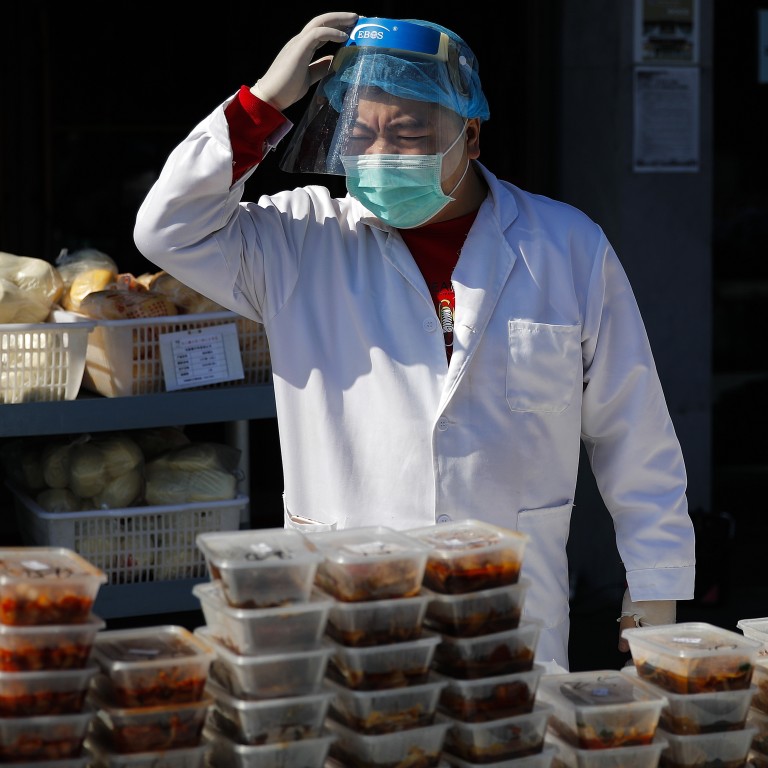
Coronavirus: China offers under pressure small, medium-sized businesses lifeline by delaying loan payments
- Banks have been told to grant extensions until the end of June for eligible businesses with repayments or interest due between January 25 and June 30
- China’s central bank has already made 500 billion yuan (US$51.5 billion) of additional funds available for commercial lenders to lend to firms
China will offer temporary relief to small and medium-sized businesses under pressure from the coronavirus outbreak by allowing firms to delay loan or interest payments until the end of June, with many in danger of bankruptcy.
Banks across China have been told to grant the extensions to eligible small and medium-sized enterprises (SMEs), as well as micro and self-employed businesses, who have payments or interest due between January 25 and June 30.
The move, announced on Sunday by the People’s Bank of China, the finance ministry, the National Development and Reform Commission, the China Banking Insurance Regulatory Commission (CIBRC) and the Ministry of Industry and Information Technology, is the latest effort to offer “targeted” help to private firms hit hardest by the coronavirus.
According to China’s Ministry of Industry and Information Technology, only 30 per cent of SMEs had resumed work by mid-February, compared to over 90 per cent of state-owned enterprises.
“The policy emphasises precise support and focus on helping SMEs with the early stage normalisation of operations, and temporary difficulties due to the epidemic, and good development prospects,” a CIBRC spokesman said.
Banks in Hubei province, the epicentre of the outbreak which has infected over 80,00 and people and killed close to 3,000 in China as of Sunday, have also been specifically told to make special credit arrangements and to charge special rates to cut interest rates for SMEs by at least 1 percentage point from the previous year's average level.
Some companies that have been heavily affected [by the coronavirus] are asking how they are going to handle this if don’t have any business and they still need to pay costs
“All Chinese government officials hope that there are no lay-offs, or there are as few lay-offs as possible. But some companies that have been heavily affected [by the coronavirus] are asking how they are going to handle this if don’t have any business and they still need to pay costs,” said Michelle Ya-Ling Gon, a partner on secondment to the Shanghai office of McDermott Will & Emery’s strategic partner, MWE China Law.
According to Gon, struggling companies may ask employees to accept decreased or delayed salaries, or for them to work in shifts or take leave, or the firm may be forced to temporarily shutdown operations all together.
“If there are substantial changes in the operation of the enterprise occurring during the loan period, [banks] should handle [the outstanding loans] accordingly in a timely manner,” the CBIRC spokesman added.
Purchase the China AI Report 2020 brought to you by SCMP Research and enjoy a 20% discount (original price US$400). This 60-page all new intelligence report gives you first-hand insights and analysis into the latest industry developments and intelligence about China AI. Get exclusive access to our webinars for continuous learning, and interact with China AI executives in live Q&A. Offer valid until 31 March 2020.

